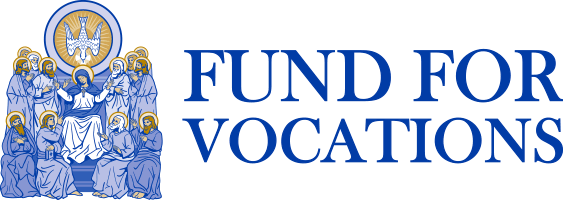Our mission is to increase vocations to Catholic religious life by eliminating the obstacle of student loan debt that prevents otherwise qualified young men and women from entering formation.
Canon law requires that a person entering the novitiate of a religious order be free from any debts they cannot pay. This flows naturally from the vow of poverty. Without financial assets, vowed religious have no way to make monthly payments on loans. Most vibrant religious orders have no assets to spare for assisting their aspirants with their debts. What little they have must be allocated to feeding and housing their members. Many religious orders are mendicant and beg for their daily sustenance.
Most aspirants to religious life have no trouble clearing their personal debt: selling a car to pay off the car loan, working to pay down credit card debt. But student loans are different.
The average aspirant to religious life who has attended college faces a student loan balance of $40,000, which must be paid in just months rather than the 10 – 20 years originally intended.
As a result, an aspirant’s entrance is delayed, sometimes for many years, or lost altogether. And the Church is weakened.
Mater Ecclesiae: The Mother of the Church
We have dedicated this work to Our Lady, and placed it under her protection, in her capacity as mater ecclesiae, Mother of the Church. This is fitting because she was present at Pentecost, when Christ’s disciples, the first to embrace their vocations at the very moment of the Church’s founding, were confirmed in those vocations by the Holy Spirit. We are sure that Mary’s presence was a great comfort to those first disciples. Those who come to us seeking assistance to embrace their vocations will find comfort from her also.
Our History
Founders Corey and Katherine Huber started the organization that would become the Fund for Vocations in 2004 through a private foundation they had established three years earlier, upon Corey’s retirement from AOL. Their pastor told them about a man who wanted to enter religious life: he was within six months of the upper age limit for entering his religious order and had about $40,000 in outstanding student loans that had to be eliminated before he could enter religious life. How was he going to repay $40,000 in six months?
Corey and Katherine explained to their pastor that their foundation was prohibited from giving money to individuals outside of an approved grant program. At the same time, they were sympathetic to the man’s plight.So the Hubers went to their lawyers and explained the problem. The lawyers searched for a solution and found an IRS ruling that denied a tax exemption to a similar program operated by a group of Protestants who wanted to encourage men to stay in ministry. Using this ruling, the lawyers were able to design a program to meet all of the objections the IRS had raised to the program that failed. The Hubers joke that the entity that eventually became the Fund for Vocations was designed in collaboration between the Holy Spirit and the Internal Revenue Service.
Soon after the program was designed and received IRS approval, the Hubers learned that the man whose student loan debt had gotten the whole thing started had tried his vocation but discerned out. It was as if this new program was all dressed up with nowhere to go; no one the Hubers knew needed such a grant.
But very soon after that, Corey attended a dinner given by a diocesan vocations office for seminarians and men considering the diocesan priesthood. Corey happened to mention the fledgling grant program to a man at that dinner who told Corey about a young woman in that very situation. She was the first applicant, and it has grown from there.
As the word spread, the Hubers received more inquiries and applications. From 2004 through 2006 they issued thirty-one grants to young men and women entering a variety of religious institutes and orders. Over the summer of 2006, as the Hubers continued to receive applications, they realized that the funds for issuing grants were not unlimited. Each grant entails a commitment to make payments over a period of 10 to 15 years. It’s vital to make sure that the money will be on hand in the future to cover the commitments we make now.
Thus, in August 2006, at the final meeting of the foundation’s application review board, there were 10 applications but only enough resources to make five grants. That was a tough meeting!
That was when, in consultation with the review board, the Hubers decided to launch a new charitable organization to give the public the opportunity to share this great work with us. The Mater Ecclesiae Fund for Vocations (Fund for Vocations) was incorporated in November 2006 and received its tax exemption from the IRS in February 2007.
Since then, the Fund for Vocations has been receiving financial assistance from the Catholic faithful and issuing new grants each year.
